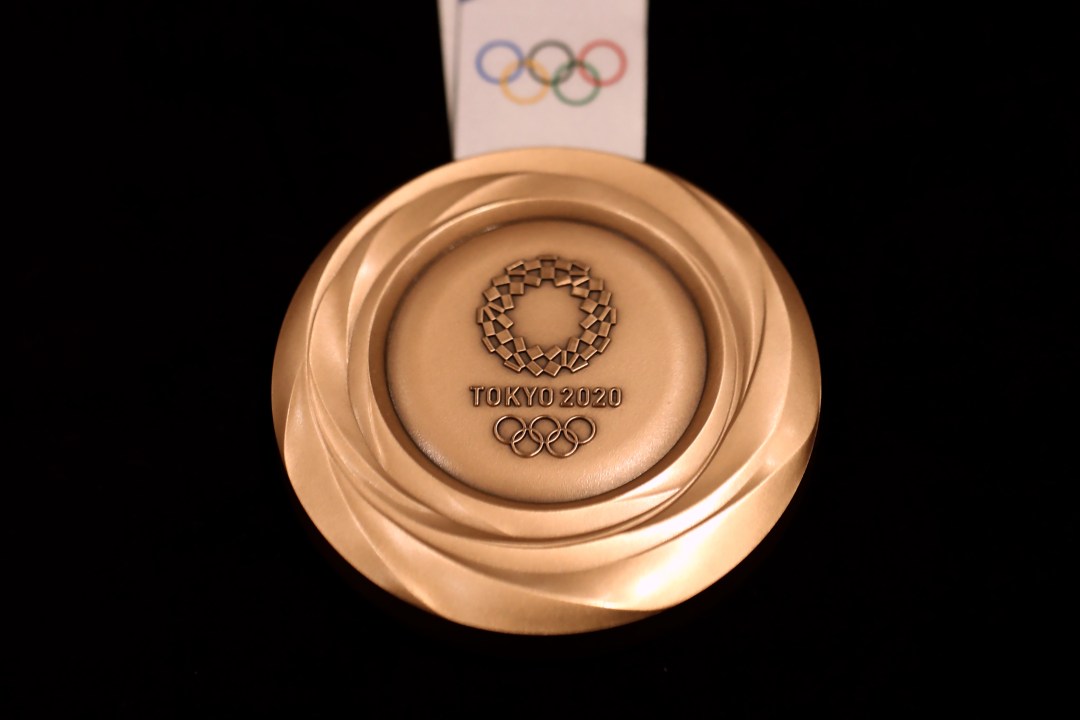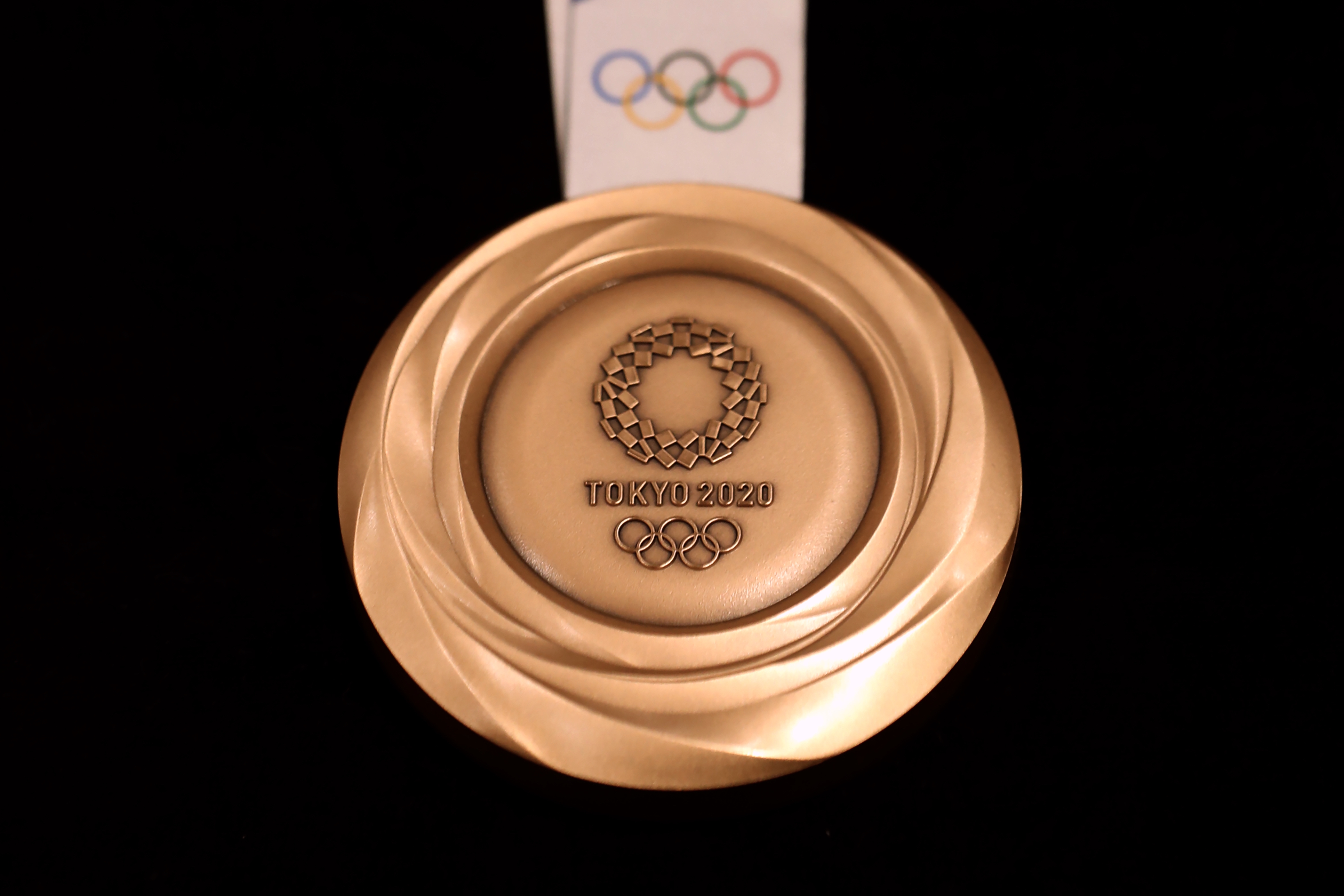In the 50-kilometre walk at the 1948 Olympics, the gold and silver medallists were aged 28 and 33 respectively. The man who took bronze, Britain’s ‘Tebbs’ Lloyd-Johnson, was 48 years old. Still the oldest person ever to win an Olympic track and field medal, Tebbs is now more famous than the men who finished ahead of him.
Another British bronze at those 1948 London Olympics was also worth more than most gold medals. Just three years previously when released from forced labour in a Japanese prisoner of war camp, weightlifter Jim Halliday had weighed a skeletal six stone (38 kg). Restoring his strength by eating eggs (including the shells which, he maintained, contained more calcium), Halliday shovelled coal all day at Kearsley Power Station, before training at home: ‘Unfortunately the bar was 6 foot 11 inches long and the widest part of the room was 7 foot 1 inch… The bar had to go straight up and straight down.’ Securing bronze with his very last attempt, ‘Jumping Jim Halliday’ leapt joyfully over the bar he’d just lifted.
Surprising as it sounds, athletes often feel better about winning bronze than silver
Surprising as it sounds, athletes often feel better about winning bronze than silver. After analysing footage of Olympic competitors at the moment they learned which medal they’d won, then on the podium receiving it and later during interviews, psychologists report that in general silver medallists are the least happy with their lot. Counter-intuitive? Maybe, but remember that for the rest of their lives the silver medallists are going to have to put up with ‘helpful’ suggestions (‘Perhaps if you’d just sort of lunged at the line like a hundredth of a second sooner …?’).
Since the games only come round every four years (or five when Covid intervenes), for many athletes there’s no second chance. ‘I think about what happened in Rio literally all the time. It hurts to my core. And it’s something I will never get over,’ commented one silver medallist after the last Olympics. Intense dissatisfaction at such a near miss often triggers the secretion of unhealthy stress hormones. Perhaps silver should come with a health warning.
If second place brings regret, the problem with gold is the excessive adulation; gold is often overhyped in an attempt to provide drama and a super-hero. Why else pretend that 9.81 seconds in the 100 metres dash is so much better than 9.82? Back in ancient Athens they’d have called that a dead heat. Instead the modern medal ceremony exaggerates these infinitesimal differences, placing gold a whole step higher on the podium. If gold was only a hundredth of a second ahead, perhaps that step should be just one millimetre higher – and see if anyone can actually spot the difference.
Besides, we shouldn’t confuse winning by a tiny margin in one race with actually being the best. Often the athlete with the fastest times in the months leading up to the Olympics doesn’t win the final. What happens in that particular race may be just one of several likely outcomes; run it again and you might well get a different result. As so often in life, deep down we sense that the winners were lucky and that those who narrowly missed out deserve some sympathy.
And in the long run, winning gold may not be so lucky; it may define a life too soon. It’s the curse of the child film star: everything afterwards is downhill. Problems accepting that the high point of their life is already behind them may explain why so many gold medallists struggle with depression.
Meanwhile having narrowly avoided the oblivion of fourth place, the bronze medallist is delighted to be on the podium and is often beginning to look for new challenges. ‘Jumping Jim Halliday’ went on to write the inspirational best-seller Olympic Weight-lifting and Body-building for All and was immensely proud of finishing runner-up in the Daily Mail’s ‘Brain of Britain’ competition. ‘Maybe I could have used up the time in a more lucrative sphere,’ he said, ‘[but] I do not regret a second of my life.’ He died in 2007, aged 89.
Content with their lot, many Olympic bronze medallists move on to lead rich and fulfilling lives and, studies suggest, they tend to live longer than their companions on the podium. In the long run, if too many silver medal winners are forever regretting what nearly was and too many gold medallists are undone by a sense of anti-climax, then bronze is best.







Comments